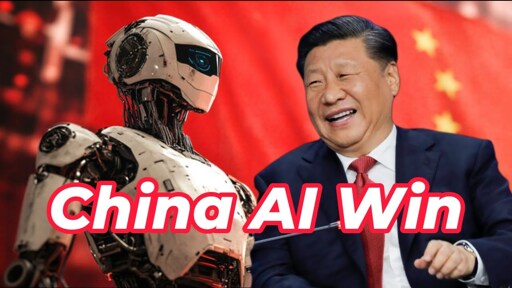cross-posted from: https://lemmy.world/post/32632260
cross-posted from: https://lemmy.world/post/32631687
Generated Summary below:
Video Desceiption:
Carl Zha talks to AI expert TP Huang on why Chinese Open Source AI Models will win over US closed OpenAI in global adoption of Chinese AI #china #techwar #deepseek
You can follow TP Huang on Twitter: / tphuang
Subscribe to TP Huang’s Substack: https://tphuang.substack.com/You can follow Carl Zha on Twitter: / carlzha
Generated Summary:
Main Topic: The AI race between the US and China, focusing on the potential for Chinese open-source AI models like Deepseek to surpass US closed models like OpenAI.
Key Points:
- AI Arms Race: The discussion highlights the view that the US and China are in an AI arms race, with significant implications for global dominance.
- Deepseek Ban: There’s concern about a potential US ban on Chinese AI models like Deepseek, similar to the TikTok ban, driven by Silicon Valley lobbying.
- Open Source vs. Closed Models: The advantages of open-source AI models are emphasized, including cost-effectiveness, the ability to run locally without sending data to external servers, and customization to remove censorship.
- OpenAI’s Limitations: Concerns are raised about OpenAI’s reliability (downtime) and data privacy practices, making open-source alternatives more appealing for certain applications.
- Global Adoption: It’s argued that countries and companies outside the US may prefer Chinese open-source AI due to cost, control, and the ability to tailor the models to their specific needs and cultures.
- Economic Implications: Restricting access to open-source AI models in the US could put American companies at a disadvantage compared to their global competitors.
- AI Hype and Investment: The discussion touches on the current AI hype and whether the downstream is paying for AI right now.
Highlights:
- The potential for a bifurcated world with US AI and Chinese AI dominating different regions.
- The observation that Deepseek’s release wiped out $1.5 trillion off the US stock market in a single day.
- The point that open-source models allow users to avoid sending data to OpenAI and customize the model to remove unwanted censorship.
- The suggestion that the US political landscape is influenced by Silicon Valley’s financial contributions.
About Channel:
Host Silk & Steel Podcast on China, history, culture, politics @SteelSilkn


